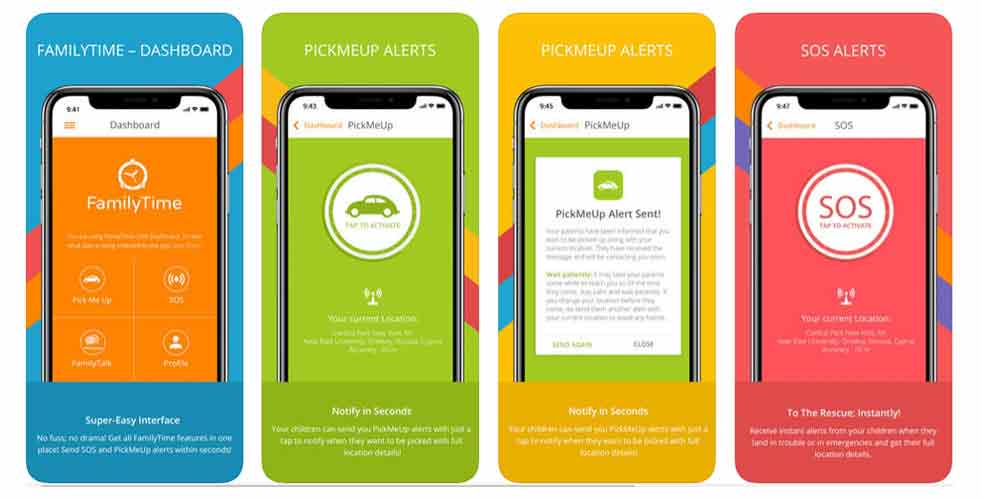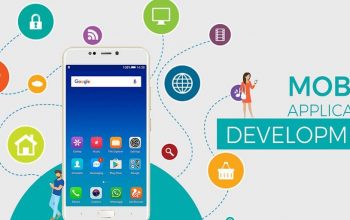To hold an eye on your cute little moppets or your surly teens, will you need one of the best parental control apps? Turns out you may indeed be.
Question yourself: Are your children’s Snapchat, TikTok or Kik smartphones or tablets running? When you unexpectedly step into the building, do your children easily tuck their phone screens out of view? If so, there’s something they’re covering, because you need to keep reading.
The best mobile parental control software will help you maintain an eye on your offspring, online as well as offline. The apps will watch the physical positions of your children, see with whom they connect online, set restrictions to their everyday screen time and prevent them from visiting websites that are unacceptable. If you want to find out what your children are doing on the internet, these apps are critical.
These applications can’t do anything for you, though. When they’re part of a systematic solution to making the children behaving safely digitally, they perform better. That means you need to speak to your kids about what they can and shouldn’t do online, clarify how you want them to behave, and make clear that you will be watching their phones.
In that context, we should not check applications for parental regulation that will operate on a child’s phone in stealth mode such that the child can not know the software is installed. Several parental-control devices have this capacity, and some also advocate it.
But the sad fact is that many people use such “stealth” applications to spy on their partners or other adults, not to track their baby. In domestic violence, this so-called “stalkerware” is also a cause.
Furthermore, we do not consider applications that can monitor the phone calls of an infant. In several jurisdictions, that’s unconstitutional.
What are the finest apps for parental control?
No parental control service is ideal, but on both Android and iOS smartphones, Net Nanny has provided the strongest combination of site filtering, position monitoring and app maintenance. It also operates on Google Play-supporting Amazon Kindle Fire smartphones, Windows and Mac, and Chrome OS computers.
A near runner-up was the Norton Family. It provides text-message recording and tracking, unlike Net Nanny, but only on Android devices. It also helps you to control PCs on Windows, but not Macs.
Kaspersky Healthy Kids can be regarded by parents on small budgets. Its free tier covers site tracking, time limits and app maintenance, and with an infinite range of computers, including PCs and Macs, its full-featured paying package is only $15 a year.
Many antivirus products have built-in parental controls. Please see our review of the best (and worst) antivirus apps for parents to see how good they match up against the stand-alone providers.
Due to Apple’s stricter software limitations, all these parental-control applications will do more on Android than on iOS. In mid-2019, a couple of these applications were disabled by an Apple policy update, and although the applications eventually had some of their features returned, Apple might at any point yank the rug out of them again.
But if you’re very serious about keeping track of what your kids do online, get Android phones for them. Only be aware that you have to sideload some parental control app-there ‘s typically an explanation why it’s not in the official Google Play store.
With the best iPhone VPN, keep your confidential data secure …
… or improve your phone ‘s protection with the best Android VPN
News & alerts on Parental-control-app
MMGuardian also added tracking on iOS computers of SMS text messages and instant messages.
To hijack accounts and distribute pro-Trump tweets, web vandals are brute-forcing Roblox codes.
The Android applications have been modified by Net Nanny to operate on Chromebooks that can navigate the Google Play store.
The strongest software you can use for parental power
- Net Nanny Parental Control
- Norton Family
- Kaspersky Safe Kids
- Qustodio
- OurPact
- Screen Time
- ESET Parental Control for Android
- MMGuardian
No.1 Net Nanny Parental Control
Zift / Net Nanny, which we consider the best app for parental control, has outstanding technologies for site filtering and a sleek, intuitive interface.
It comes nearest to providing function parity between its iOS and Android models among all the parental-control applications we tested. Latest Apple policy updates may not appear to have impacted the iOS expertise.
In all platforms, Net Nanny will monitor the position of your infant, show their position background, and set time allowances and schedules equally well. You can disable some hundred applications on your child’s phone with the iOS version; the Android one lets you disable them all. (The readers of Tom’s Guide save $10 off each of Net Nanny ‘s plans.)
Instead of banning or permitting them altogether, Net Nanny recently introduced material filtering that operates inside social networking applications and utilities, like Instagram, TikTok and YouTube.
Monitoring calls or emails is the one thing Net Nanny can’t do on a mobile. On iOS, no applications that we checked will do that, but on Android, many can.
No.2 Norton Family
The power and features of the Norton Family are perfect for Android (and Windows) households with many kids, providing almost any functionality a parent might expect from one of the best applications for parental control.
The location-tracking, time-scheduling, and web-filtering and reporting features of this service function on both iOS and Android, but the time allowances of Norton are only for its apps for Windows and Android. In the iOS app, app management and text-message control do not work at all. No geo-fencing occurs on any smartphone platform.
If you opt for one of Norton’s more costly antivirus suites, such as Norton 360 Deluxe, which is mostly discounted at as low as $50 a year, Norton Family falls free. It is a no-brainer to get Norton Family along with Norton ‘s outstanding antivirus security at that price, unless your children use Macs instead of Windows PCs.
No.3 Kaspersky Safe Kids
Kaspersky Protected Kids, like Qustodio, helps you to track the behaviors of your children on PCs and Macs, as well as on smartphones. Much better, the premium tier of Kaspersky is just $15 a year (there is a free 7-day trial) and the free plan helps you to establish time limits, filter websites and handle other software.
In both iOS and Android, Kaspersky ‘s position tracking and geofencing run, as do its site tracking and system scheduling. But on iOS, app monitoring is restricted, and the iOS app is unable to track calls or texts at all.
Similarly, if you’re a paying customer, a recent functionality that enables you to disable particular forms of YouTube searches and check YouTube search history operates on Windows , iOS and Android, like the YouTube Android version, but not on Macs.
Even, if you don’t feel the need to read text messages from your kids, then it’s well worth considering Kaspersky Secure Kids.
Kaspersky Lab lodged an antitrust lawsuit against Apple in March 2019 for reportedly pressuring Kaspersky Healthy Kids to delete functionality as part of a ban on parental control software. Any of those limitations were eased by Apple in June 2019, but the Kaspersky situation remained. Russian antitrust regulators directed Apple to undo the reforms in August 2020. We’re going to have to watch to see what Apple’s doing.
No.4 Qustodio
Qustodio has software and Amazon Fire tablets for Macs, PCs, iOS and Android devices, and helps you to set time limits for individual applications and devices.
The restricted position monitoring of this service works on both iOS and Android, and in the fall of 2019, Qustodio finally introduced a geofencing function. In September 2019, a Family Locator feature was introduced that tells you where all your children are at once.
On iOS, as compared to all Android users, you will handle only a few hundred users. On iOS, web filtering is more effective, whereas text and call tracking works only on Android.
The one major downside is that for 15 units, Qustodio will get darn costly, costing up to $138 a year. Qustodio experimented with selling a slightly cheaper $40 per year three-device contract in early 2019, although it did not last.
No.5 OurPact
OurPact, once the most effective parental regulation software for iPhones, was hobbled in late 2018 by an Apple law update that nixed the geofencing, position monitoring and time allowances of the service on iOS.
In early 2019, Apple secretly expelled OurPact from the App Store, but OurPact was restored in July of that year, after Apple relaxed back on its constraints.
At its height, OurPact was the only software we checked for parental control that could handle or block any iOS app. For Android smartphones, it will also do so. OurPact often has children interested in handling the regular screen time allowance that you offer them, and it does a strong scheduling job.
But, the filtering website merely blocks porn, and even on Android, it can’t track calls or messages at all. You can disable chat applications, though, and OurPact continues to be a delight to use.
No. 6 Screen Time
Screen Time — not to be confused with the iOS “Screen Time” feature — does an exceptional job of handling and arranging access to the computer for children. Unfortunately, at least on iOS computers, it doesn’t do a whole lot else. The monitoring of software and page browsing are just for Android.
Screen Time now has baffling improvements for site filtering and position monitoring, all of which are arguably important and come common with most applications for parental control. (In the 14-day Screen Time premium preview, you will get all features.)
We loved how Screen Time helps you to dole out extra, yup, screen time to children doing chores or good deeds. But on iOS, you can’t restrict applications, and there’s no call or text tracking at all, while geo-fencing and position history have recently been added — only for Android phones.
No.7 ESET Parental Control for Android
ESET Parental Control for Android sticks to a single platform, but even there it does not shine, ignoring the capabilities of text message and call tracking (and number blocking) and imposing clunky restrictions on what it has.
For the free edition of ESET Parental Control for Android, the app management and time scheduling you get works well, as does the position monitoring and geo-fencing you can get if you opt for a subscription. (There’s a free 30-day trial.) And we liked the functionality that helps a kid with a single tap to deliver an SOS message to assigned phones.
Even, whether you have it packaged with ESET Endpoint Coverage, the $30 annual package is not worth shelling out for. This is because, on four times as many devices and at half the price, Kaspersky Safe Kids does better than ESET Parental Control for Android.
No.8 MMGuardian
On Android phones, MMGuardian has almost every parental control feature you may like, but on iOS its skills are quite restricted and the user interfaces on both platforms are outdated and confusing.
Location monitoring and excellent site filtering are provided by the iOS and Android mobile applications, and MMGuardian also has an artificial intelligence component to spot nudity in saved photos.
A parent may use MMGuardian on an Android phone to read any text and block any amount. Sadly, time control and screen-time preparation are Android-only, and there is no position monitoring for the independent MMGuardian software for Android tablets.
On iOS, the app management of MMGuardian is primitive, and there is no blocking of calls and SMS. However, it recently introduced SMS and instant message tracking to a child’s iPhone with a smartphone app linked with Wi-Fi.
How to pick the right software for you for parental control
What you need from a parental management service depends largely on how old the children are. You absolutely want to be able to disable inappropriate websites if you’re the parent of children under 12, but you may also recommend an app that’s accessible on Amazon Fire tablets.
You may choose to let them look at inappropriate stuff online if you have kids, but only if you’re conscious of it. In messaging applications, you might even like to see who your teenagers are referring to, to see if they are late on a Friday night. And you might want to suggest a program that tracks both the Windows and Mac computers of your children and their smartphones.
A website filter, position monitoring, screen time limitations, including a scheduler, and an app blocker that operates at least on Android, can at least provide the strongest parental control software.
Useful additional features include geofencing, which warns you if the phone of a child exits a specified “protected” place, such as school or the house of a parent. Some of these applications enable you, but only on Android, to block and record the calls and texts a child makes and receives.
A few would even let you read text messages from a kid, but none would let you listen to them on call, since that’s illegal. And most of them let you track your child’s phone from the web interface of a desktop computer as well as from your own smartphone.








